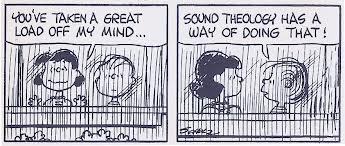Thirty Years Later: Who Needs Theology?

In my twenties, theology was the primary focus of my life. In my fifties it is still a focus in my life, but it is no longer primary – or is it?
In Who Needs Theology: An Invitation to the Study of God by Stanley J. Grenz and Roger E. Olson (1996), the field of Christian theology is introduced. The authors define theology as follows: “Christian theology is reflecting on and articulating the God-centered life and beliefs that Christians share as followers of Jesus Christ, and it is done that God might be glorified in all Christians are and do.”[1] Frankly, when I read this definition, my first thoughts were, “Here we go again! Another dry theology book just like college and seminary.”
But then I came to Chapter 5.
I have been a Christian for 48 years. I came to Christ in a Conservative Baptist Sunday School class. That day, I fell in love with Jesus. Slowly, I grew in my faith until I felt a call to ministry, and at 21, I became a full-time pastor at a mega-church whose job it was to teach the Scriptures from Genesis to Revelation. Combine that with a biblical studies/theology degree from a conservative Bible college, and I was now a walking theologian of the first degree! I was good in the pulpit, proficient at worship leading, and had all the answers! I had arrived and stayed in that state of bliss for almost six years. Then real life hit me. I got married and started having children, which forced me to look at my dysfunctional past. I sunk into a deep, black hole. Eventually, I climbed my way out and continued in ministry (which contained more real-life issues), this time with fewer answers. Slowly and unintentionally over the next 30 years, I was being converted from a conservative believer into a much more liberal believer. My list of non-negotiable issues began to shrink, the word “mystery” began to be included in my theological vocabulary, and I began to truly appreciate Jesus’ greatest commandment in Matthew 22.
Back to Chapter 5.
Chapter 5 is titled, Theology’s Tasks and Traditions. In it, Grenz and Olson talk about theology’s critical task and constructive task.[2] The first activity of the critical task of theology is to “…examine beliefs about God, ourselves and the world in light of Christian sources, especially the primary norm of the biblical message.”[3] Here, the authors make a case that the early church and the church through the centuries defended the Gospel against false teachings and incorrect ideas and practices. The second activity of the critical task of theology is to “…divide Christian beliefs into categories based on levels of importance.”[4] The three main categories of Christian beliefs are dogma, doctrine, and opinion. Those beliefs that are central to the Gospel are considered dogma. Those beliefs that are important but not considered essential are doctrines. Those beliefs that are interesting but are relatively unimportant to the faith of the church are opinion.[5] Wow! Thus, true Christian theology allows for diversity of thought without throwing out essential truth – particularly regarding the divinity of Christ. Christendom allows for a broad, inclusive family of believers. This is good news for my Roman Catholic and Eastern Orthodox brothers and sisters. It is also very refreshing for at least one liberal, Episcopal lover of Jesus – me.
The authors ask a good question, “Who needs theology?” Their response to this question is as follows:
The contemporary church does. Why? So that we can indeed be God’s people in our world. What kind of theology do we need? One that is truly scriptural, completely Christian and totally relevant. One that embodies the biblical message as proclaimed by the one people of God in a manner that interfaces with life in our specific context. Only this kind of theology can provide us the intellectual resources we need to live out our calling as Christ’s disciples in our world.[6]
If this is Christian theology, then I guess it is still primary in my life. There is hope after all!
Leave a Reply
You must be logged in to post a comment.